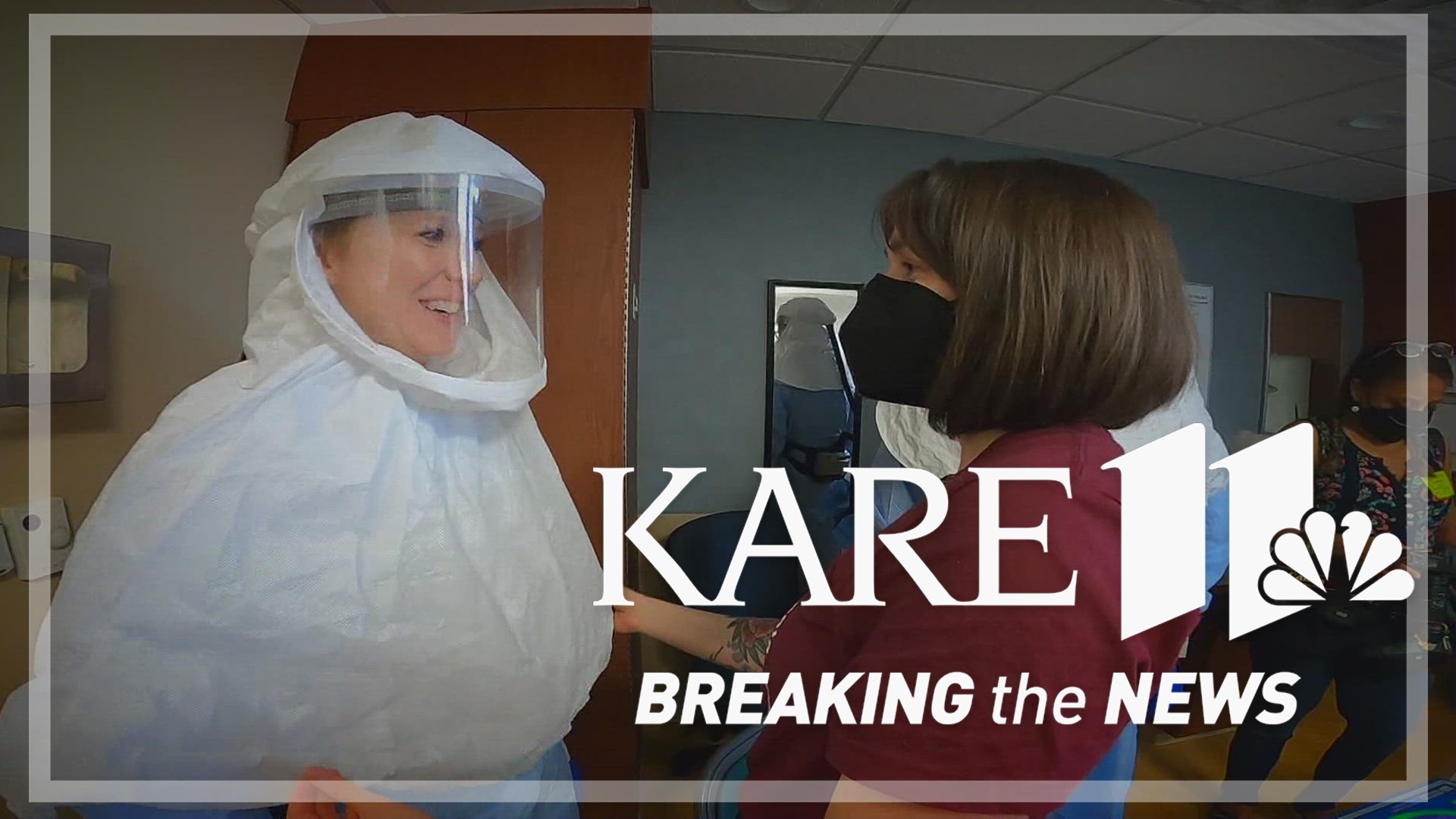MINNEAPOLIS — Inside M Health Fairview University of Minnesota Medical Center on Wednesday afternoon, a highly trained medical team practiced donning layer, after layer, after layer of personal protective equipment in preparation for a day they hope never comes.
"In this drill, the team will be practicing care for a patient with Ebola or another viral hemorrhagic fever," said Dr. Susan Kline, Medical Director for M Health Fairview's Special Pathogen Unit.
The Special Pathogen Unit was created in 2014, when the Ebola outbreak prompted the federal government to designate 10 regional centers to handle highly infectious and transmissible viruses.
Dr. Kline: "We're the regional treatment center for the Great Lakes Region, which serves six states."
Kent Erdahl: "What makes a Special Pathogens Unit different, physically, just in terms of the layout?"
Dr. Kline: "For one thing, we have this laboratory, right here, which is set up to do point-of-care testing right up on the unit. So if we had a patient admitted with Ebola virus disease, for instance, you could run tests up here."
The unit also consists of two high-level isolation ICU rooms, which are equipped with negative airflow, and an adjoining room for removing PPE. That attention to infection control is a major point throughout training drills, which occur throughout the year.
On Wednesday, the team worked together to don many levels of PPE, as doctors worked to put a central line into a simulated chest.
"Those are catheters that feed into the central veins, and provide IV access to critically ill patients," Dr. Kline said. "It is a routine procedure but is more challenging when you're wearing two sets of gloves or the proper hood. It changes how you approach these skills."
Dr. Janet Hume was among several team members who carefully performed the procedure in the highest level of PPE available.
"It's a good experience to practice it," Dr. Hume said. "It's a lot more difficult than our usual procedures, with all the isolation gear. Your field of vision is very limited."
Though the drills are exhaustive, they have become much more than just hypothetical training exercises in recent years.
"The skills that we practice, as far as our training on this special pathogens unit, helped us respond quickly to the COVID outbreak," Dr. Kline said.
She says the team helped with the emergency implementation of PPE protocols and other training as M Health Fairview opened the first COVID unit inside Bethesda Hospital early in the pandemic.
And while new variants keep emerging, the team is also watching the monkeypox outbreak.
Dr. Kline: "In the case of monkeypox, if you had a patient in the current outbreak, who did become seriously ill and required an ICU admission, this would be a safe place to care for them. They could have an infection that was infecting their lungs, for instance, because monkeypox can potentially be spread through the droplet or airborne route."
Erdahl: "Does this take on greater urgency at a time when we're seeing some of these things spread?"
Dr. Kline: "I think it makes it real for all of us, realizing one of these patients might show up at our facility, or a referring facility, so we really need to be prepared and ready to respond."
Watch more Breaking The News:
Watch all of the latest stories from Breaking The News in our YouTube playlist:

